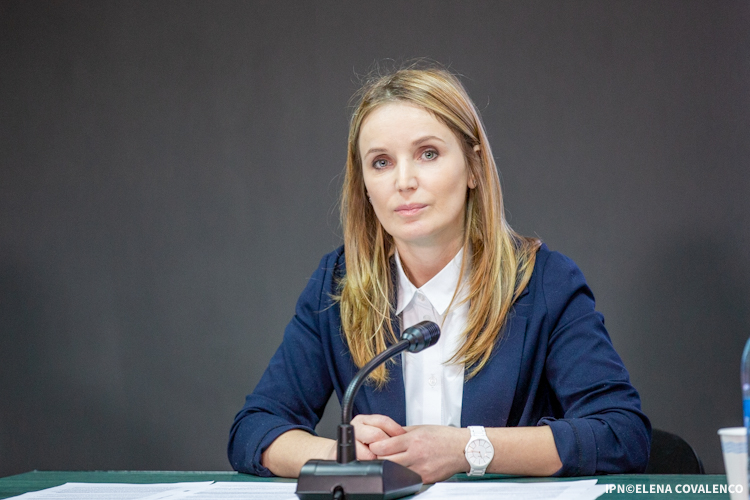A hybrid war cannot be won with government institutions that have outdated views, with mentality outpaced by the new realities, when the technologies advanced a lot and artificial intelligence already automates processes, Natalia Spînu, executive director of the European Institute for Political Studies of Moldova (IESP), stated in a public debate hosted by IPN.
“By destabilization and manipulation, they try to scare the population, to make it vulnerable. We must be ready, have a plan of action for an eventual crisis. It is very important to realize the roles and responsibilities of the government institutions also at the level of civil society, the public sector, which should not stay aside, but should become involved,” said Natalia Spînu.
She noted that similar to hackers, society should think one step forward so as to win the battle. “The hackers are ingenious, creative and easily adjust to the new realities. We cannot win this war with government institutions with outdated views, with mentality outpaced by the new realities. The emerging technologies advanced a lot. We also speak about artificial intelligence that practically automates the processes and these hackers use these technologies to our detriment already. They use us as proxies in the launch of these attacks. We must be well-educated and devote attention to the sources of information and should have critical thinking,” stated Natalia Spînu.
She added it is very important to lay emphasis on cybersecurity as it is easy for the attackers, when they have access to sensitive information, to realize what the Republic of Moldova plans for the future. “They try to put us face to face, to distract attention from important things. We must overcome these attempts by a higher level of responsibility and by assumption. In the Republic of Moldova, the avoidance of responsibility will probably become a kind of national sport,” said the IESP executive director.
Natalia Spînu noted the fact that disinformation is a component of hybrid war is well known, but the new element that makes things more difficult in this disinformation war is that now the technologies hamper things a lot. The information can no longer be monitored so easily online. “In the editorial offices of media outlets, the information is verified, confirmed, but online, on social media, anyone can now use the information to disinform. This battle against fake news is very hard. Even if TV channels or news websites were closed, we saw that anyone who is now penalized, closed can open another online platform,” stated Natalia Spînu.
As to the solutions to the hybrid war, she said that each citizen should be better informed. “The hybrid war succeeds when the enemy knows the weaknesses. We must work to see how the enemy can find out less about these weaknesses. The acknowledgment can be an element, as education can be. It is important that each of us form part of this security shield. If so, even if the enemy possesses information, these would be unable to stage an attack. Everyone, by their contribution, can help build a state that is resilient to these new threats that are very intricate and there is no magical solution. We must encourage critical thinking,” said Natalia Spînu.
The public debate entitled “Hybrid war: manifestations, dangers, solutions” was the 280th installment of IPN’s project “Developing Political Culture through Public Debates” that is supported by the Hanns Seidel Foundation.
- The designated Prime Minister, in consultations with parliamentary factions
- Hundreds of Moldovans have been left without their Romanian identity cards due to fictitious residence
- Free subscriptions in public transport – false information, warns RTEC
- The conditions for EU accession reflect the expectations of Moldovan citizens, states the EU am
- Veronica Mihailov-Moraru, from minister to presidential advisor in justice


